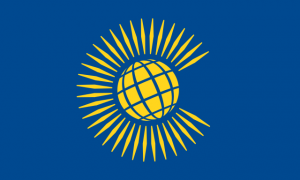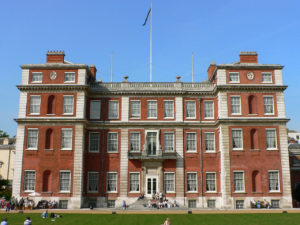Edited by Dr Sue Onslow, Deputy Director, Institute of Commonwealth Studies
In January 2018, as preparations towards the Commonwealth Summit in London began to accelerate, Senior Research Fellows at the Institute were asked for their views on the valid question, ‘Is the Commonwealth relevant?’ This seemingly simple question raises a number of issues: what does ‘Commonwealth’ mean? How to measure its relevance or otherwise? In what ways and forms? Relevant to whom? Should the question be asked at all?
Sue Onslow
‘The Commonwealth needs its critics, to keep it on its toes. It constantly has to prove its relevance, and cannot be complacent’. (Dr Moses Anafu to Sue Onslow, 16 March 2018)
First of all, the debate around the relevance – or otherwise – of the modern Commonwealth is nothing new, and there have long been questions around its viability and usefulness, complaints of irrelevance, or cries of ‘Crisis!’ In the view of the seasoned Commonwealth activist Richard Bourne, the Commonwealth needs a good old fashioned regular crisis to shake it out of complacency, and for its supporters and grudging sceptics to acknowledge its positive attributes and areas of work, rather than simply carp on the negatives of the multi-faceted and diverse association. In the early 1970s, the aspiring Secretary General ‘Sonny’ Ramphal was told firmly by his Prime Minister, Forbes Burnham, ‘Don’t waste yourself on the Commonwealth. It’s going nowhere.’ Ramphal disagreed, arguing ‘It may be like that now, but we can change it. It can go somewhere‘. On Burnham’s advice, Ramphal contacted Indian Prime Minister, Indira Gandhi. Gandhi was also sceptical, but advised him to ‘shake it up’ and the Indian leadership would back him all the way. A combination of the Cold War international environment, the developmental needs of post-colonial states in transition, and the grand strategy of opposition to apartheid in South Africa, gave the post-colonial association a visibility and relevance.
But is the Commonwealth relevant today – in a complex and interconnected world, with its proliferation of multi-lateral meetings, complex and evolving security challenges, non-state actors and transformed media landscape? Relevant to whom, and for what? The multiple meanings of the Commonwealth – to different political heads and their civil servants, to professional organisations, and different generations, make it a subtle and fluid ‘political imagination’, an ‘organism rather than an organisation’. There are many myths and multiple realities of the modern Commonwealth, with differing perspectives and level of need across the diverse association. To the average Brit, there is general mystification, civil service scepticism and exasperation, political misattribution – almost entirely down to lack of historical knowledge, and a lack of appreciation of how much Britain actually owes the modern Commonwealth for easing the path of decolonisation through generous acts of forgetting. In short, this question of relevance, or otherwise, is also a British issue – reflecting an Anglo-centric viewpoint and preoccupation with narrow power relations, of arguments within a limited metropolitan elite. It must be said that, to Indian and South African political, bureaucratic and commercial elites, the Commonwealth is now very largely an irrelevance – once useful but certainly no longer so. Regionalism has further corroded its image and diminished its efficacy as a ‘network of networks’.
 But to other states and societies across the association? Again, it depends which political leaders, communities and wider populations, and on which issues this assessment of relevance is made – as the ICWS Senior Research Fellows point out below. DfID has long valued the Commonwealth as giving a ‘voice’ to small states in the international system, as their particular national interests, security needs and developmental requirements are largely ignored or drowned out in other multi-lateral organisations. In Zimbabwe, for example, the post-Mugabe political leadership’s ‘robust re-engagement’ with the international community has seen re-joining the Commonwealth as a potential quick win in foreign policy to underpin the ‘non-coup’, to restore Zimbabwe’s reputation via a kite-mark of respectability, legitimize and validate the new political leadership in a drive for stability, and to attract desperately needed foreign financial flows. The Commonwealth as a wider community also offers the opportunity to detoxify lingering post-colonial sensitivities embedded within the London-Harare relationship. In addition, for Zimbabwe, institutions in other African Commonwealth countries also offer models of best practice, and the policy space to do this. As the leader of the opposition People’s Democratic Party, Tendai Biti put it, ‘Zimbabwe has a constitution. It needs constitutionalism.’ Therefore the multiple meanings to ‘Commonwealth’ are directly connected to questions around ‘relevance’, the range of expectations around ‘impact’, and the multi-dimensional association’s capacity to deliver.
But to other states and societies across the association? Again, it depends which political leaders, communities and wider populations, and on which issues this assessment of relevance is made – as the ICWS Senior Research Fellows point out below. DfID has long valued the Commonwealth as giving a ‘voice’ to small states in the international system, as their particular national interests, security needs and developmental requirements are largely ignored or drowned out in other multi-lateral organisations. In Zimbabwe, for example, the post-Mugabe political leadership’s ‘robust re-engagement’ with the international community has seen re-joining the Commonwealth as a potential quick win in foreign policy to underpin the ‘non-coup’, to restore Zimbabwe’s reputation via a kite-mark of respectability, legitimize and validate the new political leadership in a drive for stability, and to attract desperately needed foreign financial flows. The Commonwealth as a wider community also offers the opportunity to detoxify lingering post-colonial sensitivities embedded within the London-Harare relationship. In addition, for Zimbabwe, institutions in other African Commonwealth countries also offer models of best practice, and the policy space to do this. As the leader of the opposition People’s Democratic Party, Tendai Biti put it, ‘Zimbabwe has a constitution. It needs constitutionalism.’ Therefore the multiple meanings to ‘Commonwealth’ are directly connected to questions around ‘relevance’, the range of expectations around ‘impact’, and the multi-dimensional association’s capacity to deliver.
The Commonwealth will continue to attract those who self-identify (for good and ill), and mystify and irritate others; consequently, the debate around its relevance will continue to roil on. As it should. As a ‘political imagination’ founded on inclusive identity politics, the Commonwealth will always be partial and imperfect, flexible and disorganised, with powerful silos of intense energy and professionalism, in contrast to fixation on vapid process or sclerosis in other areas. The association could certainly learn a considerable amount from the revitalized Francophonie (the Commonwealth used to regard itself as decidedly superior to the French post-colonial association.) However, there are important and positive examples of enduring contemporary relevance: the Commonwealth’s work on electoral observation is respected internationally; its professional networks continue to support capacity building (eg. the Commonwealth Magistrates and Judges Association’s team to the Gambia in March 2018, to support training for judges and the country’s legal system compromised by years of authoritarian and quixotic rule under former President Jammeh). Commonwealth summits can provide venues for caucusing on key issues – seen at both the 2009 heads meeting in Port of Spain (before the Copenhagen summit on climate change), and then again at the 2015 Malta summit immediately before the Paris COP21 meeting; and the bilateral ‘hook ups’ on the margins of heads of government meeting are more valuable than set speeches around a 53-seat conference table. The work of its envoys in conflict situations will only become known years after the event, and here (as in other areas such as its work on maritime boundary disputes) restrictions on access to the Secretariat archives do not help its cause.
Fundamentally, its cross-racial character is its key contribution to a saner world.


Recent Comments